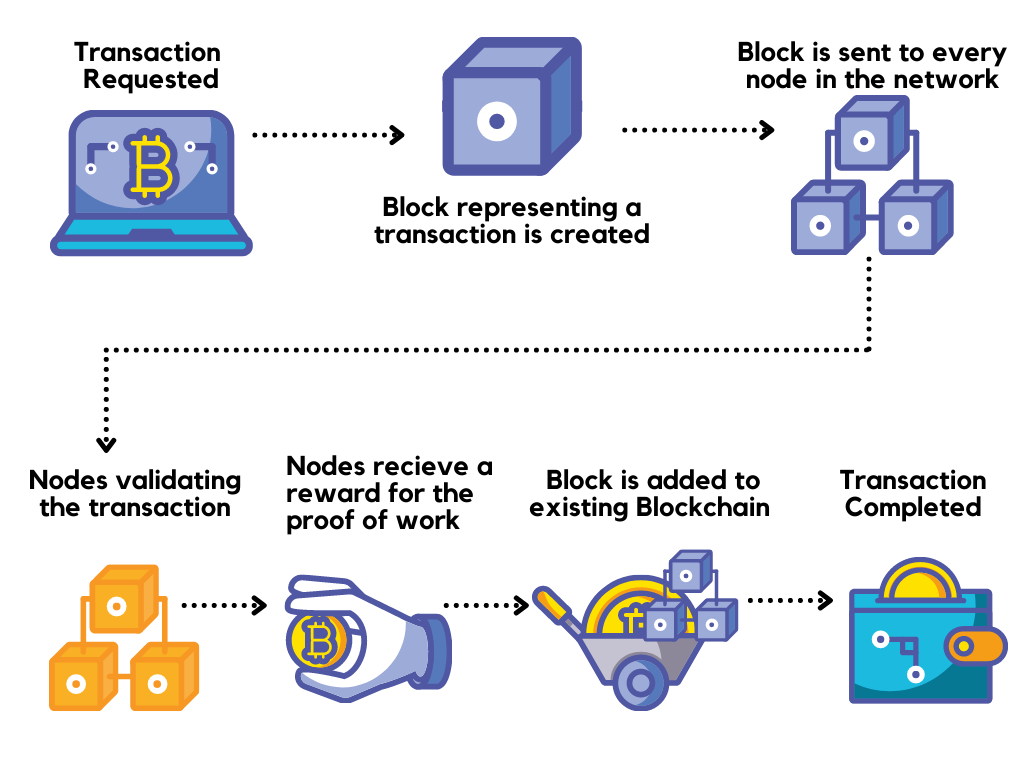Rise by Six: Your Daily Dose of Inspiration
Explore insights and stories that elevate your day.
Decoding the Blockchain Paradox
Unlock the secrets of blockchain! Discover why this revolutionary tech is both a game-changer and a paradox in our latest blog post.
Understanding the Core Principles of Blockchain Technology
Blockchain technology is a revolutionary digital ledger system that enables secure and transparent record-keeping through a decentralized network. At its core, it relies on three main principles: transparency, security, and decentralization. The transparency of blockchain allows all participants in the network to view transaction data, which fosters trust and accountability. Additionally, security is enhanced through cryptographic techniques that ensure data integrity and protect against unauthorized alterations. By eliminating the need for a central authority, blockchain technology promotes decentralization, empowering users and reducing the risks associated with centralized control.
Understanding these core principles is essential for grasping how blockchain can transform various industries. For instance, in the finance sector, blockchain enables faster and more secure transactions while minimizing the costs associated with intermediaries. Similarly, in supply chain management, it enhances traceability and accountability by providing a permanent record of each transaction or change in the product's status. As adoption of blockchain technology continues to grow, it is important for businesses, developers, and consumers alike to appreciate its foundational concepts to fully leverage its potential.

Is Blockchain Truly Decentralized? Unraveling the Myths
When discussing the concept of blockchain, the term decentralization often comes into play, leading many to assume that all blockchains operate equally without a central authority. However, this assumption overlooks the varied architectures that different blockchain networks utilize. For instance, while public blockchains like Bitcoin and Ethereum are genuinely decentralized, relying on a network of nodes to validate transactions, private or consortium blockchains may have a select group of organizations governing the network. This creates a spectrum of decentralization that is often oversimplified in mainstream discussions.
Another prevalent myth is that decentralization inherently guarantees security and immutability. While a decentralized system can enhance resilience against attacks, it does not make it invulnerable. Factors such as the concentration of mining power in certain pools can lead to vulnerabilities, known as a 51% attack, where a single entity or coalition gains control over the majority of the network's mining power. Thus, understanding the nuances of blockchain technology and the layers of governance involved is critical to appreciating how much decentralization is truly at play.
How Blockchain is Transforming Industries: Opportunities and Challenges
The advent of blockchain technology is revolutionizing various industries by providing enhanced transparency, security, and efficiency. Industries such as finance, supply chain, healthcare, and real estate are experiencing significant transformations as they adopt this innovative technology. For instance, in finance, blockchain enables faster transactions and reduced costs by eliminating intermediaries. In supply chain management, real-time tracking of goods and enhanced traceability are possible, minimizing fraud and errors. These opportunities are resulting in increased trust among stakeholders, which is crucial for industry growth.
However, the integration of blockchain is not without its challenges. Key obstacles include regulatory uncertainties, scalability issues, and the need for a skilled workforce to implement and maintain these technologies. Moreover, the energy consumption associated with some blockchain systems raises environmental concerns that need to be addressed. As industries navigate these complexities, it is essential to balance the desire for innovation with the necessity of sustainable and responsible implementation, ensuring that blockchain technology evolves in a way that benefits all participants.